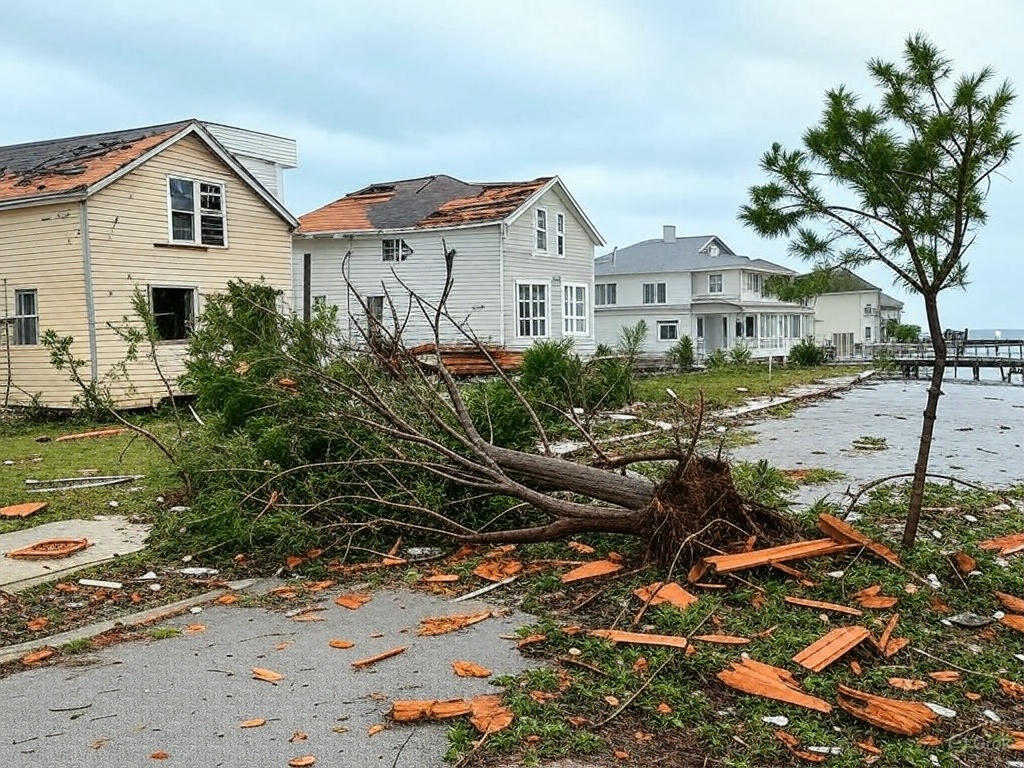The Critical Role of Property Valuation in Coastal Disaster Recovery
When Your Home's Value Determines Its Future

In the aftermath of coastal storms and flooding, Florida homeowners face a harsh reality that few anticipate: the pre-damage value assigned to your property can literally determine whether your home lives or dies.
This isn't hyperbole—it's the direct consequence of FEMA's substantial damage regulations and how they interact with property valuation methods. Understanding this critical relationship could be the difference between a straightforward repair project and being forced to demolish your beloved beachfront home.
The Valuation Crisis No One's Talking About
When disaster strikes coastal properties, local building officials must determine if your home is "substantially damaged" according to FEMA regulations. This determination hinges entirely on one critical calculation:
Repair Costs ÷ Pre-Damage Market Value = Damage Percentage
If this percentage exceeds 50%, your home is deemed "substantially damaged," triggering requirements to elevate, demolish, or otherwise bring the entire structure into compliance with current flood regulations—often at extraordinary cost.
Here's the problem: while repair costs are fairly straightforward to calculate, the pre-damage market value used in this equation is frequently underestimated by officials, pushing countless homes over the 50% threshold unnecessarily.
How Improper Valuations Force Unnecessary Demolitions
Most building departments rely on tax assessment values when making substantial damage determinations. However, these assessments:
- Chronically Undervalue Coastal Properties - Often 15-30% below actual market value, especially for older homes with significant improvements
- Fail to Account for Recent Upgrades - Many valuations don't reflect kitchen remodels, bathroom renovations, or other improvements that increase home value
- Apply Cookie-Cutter Approaches - Mass assessment methods miss the unique value factors of individual properties
- Separate Structure from Land Value Incorrectly - Only the structure's value (not land) counts in the 50% calculation, but many assessments don't accurately make this distinction
When your home is undervalued in this equation, you're far more likely to cross the 50% damage threshold—even when actual damage relative to true market value would be well under this limit.
The Staggering Cost of Valuation Errors
Consider this real-world example: The Coastal Assessment Difference
| Official Tax Assessment | Professional Appraisal | |
|---|---|---|
| Structure Value | $220,000 | $365,000 |
| Repair Costs | $110,000 | $110,000 |
| Damage % | 50% (Substantially Damaged) | 30.1% (Repairable) |
| Result | Forced elevation/demolition | Standard repairs permitted |
| Financial Impact | $135,000+ in additional costs | Normal insurance coverage |
This disparity—based solely on valuation method—represents the difference between returning to your home within months versus potentially losing it forever.
How Professional Valuation Saves Coastal Properties
Recognizing this problem, FEMA regulations actually allow homeowners to obtain "a retrospective Actual Cash Value appraisal (also known as the '50 Percent Rule' appraisal)" performed by a certified appraiser to establish true pre-damage market value.
This alternative valuation method typically produces a more accurate assessment because it:
- Includes Detailed Interior Inspection - Capturing value elements missed in mass assessments
- Reviews Owner-Provided Documentation - Considering pre-storm photos, previous appraisals, and improvement records
- Applies Proper Methodology - Using approaches designed specifically for the 50% rule calculation
- Correctly Separates Structure from Land - Ensuring only relevant value is considered
The most shocking fact? Many homeowners never discover this option until after they've already been forced into costly elevation projects or property abandonment.
Mr. Red Tag's Property Valuation Rescue Process
At Mr. Red Tag Remediation and Stop Work Order Assistance, we specialize in helping coastal property owners obtain accurate valuations that prevent unnecessary substantial damage determinations.
Our process includes:
Comprehensive Pre-Damage Value Assessment
Our network of certified appraisers specializes in retrospective valuations specifically for FEMA substantial damage determinations. These professionals understand the nuances of the 50% rule and how to properly document your home's true pre-damage value.
Documentation Compilation
We help you gather and organize critical documentation that supports your property's value, including:
- Historical photos showing home condition prior to damage
- Records of improvements and renovations
- Previous appraisal reports
- Comparable property sales data
- Insurance inspection reports
Strategic Valuation Presentation
We don't just obtain the valuation—we present it effectively to building officials with supporting documentation that maximizes the likelihood of acceptance.
Appeal Support When Necessary
If your initial substantial damage determination was based on an incorrect valuation, we provide comprehensive support through the appeals process.
Act Quickly to Protect Your Property Rights
Remember that "Substantial damage is defined in the NFIP regulations as: 'Damage of any origin sustained by a structure whereby the cost of restoring the structure to its before-damaged condition would equal or exceed 50 percent of the structure's market value before the damage occurred.'"
The key word here is "would"—not "does." This means officials are making a projection about repair costs relative to value, and this projection can be influenced by providing accurate valuation information early in the process.
If your coastal property has been damaged, don't wait for an official substantial damage determination before addressing valuation. By then, you'll be fighting an uphill battle through appeals rather than preventing the problem from the start.
Contact Mr. Red Tag today
For a free consultation on how our property valuation services can protect your right to repair rather than replace your coastal home.